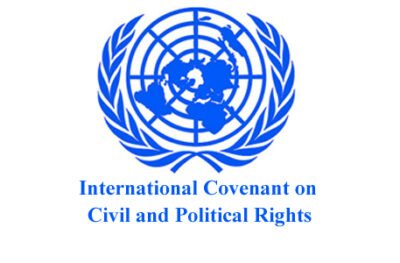Colombo (LNW): The International Covenant on Civil and Political Rights (ICCPR) is the world’s standard bearer on civil and political rights. It was incorporated into Sri Lankan law in a manner that has permitted successive governments to misuse it. The arrest and detention of comedian Natasha Edirisooriya under the ICCPR Act has become another unfortunate example of the misuse of a law meant to protect human rights by the government. Previous targets have included poets and novelists who have addressed social and political controversies.
Ms Edirisooriya is accused of having violated the provisions in the ICCPR in Section 3(1) that forbids hate speech. In one of her stand-up shows, she had given the example of Lord Buddha’s abilities as a child and compared them to life in today’s social milieu where children are slower off in developing themselves. The use of religious founders and teachers to make worldly arguments may be offensive and disturbing to adherents of those teachings. However, the depiction of this art form as being the equivalent of hate speech is unfair and unjust and so is the artiste’s imprisonment for over a week.
Section 3(1) of the ICCPR Act prohibits advocacy of hatred that constitutes incitement to discrimination, violence or hostility. The international human rights watchdog, Amnesty International, has pointed out that in the case of Ms Edirisooriya that for speech to be illegal on the grounds of being hate speech it requires “a clear showing of intent to incite others to discriminate, he hostile towards or commit violence against the group in question.” Amnesty International also notes that “When the expression fails to meet the test, even if it is shocking, offensive or disturbing, it should be protected by the state.”
Ironically, in the past there have been many instances of ethnic and religious minorities being targeted hatefully in this manner, but successive governments have been inactive in protecting them or their reputation. Such targeting has taken place, often for political purposes in the context of elections, to mobilise sections of the population through appeals to narrow nationalism and fear of the other. The country’s political and governmental leaders who claim to be guided by the tenets of religion and do not fail to make public displays of their religiosity, need to be mindful of the multi ethnic, multi religious and plural nature of Sri Lankan society and give priority to the building of sustainable pluralistic relationships based on trust, justice and fair play.
The National Peace Council urges the government to desist from utilising the ICCPR Act against those who make social and political critiques that are outside the domain of hate speech. We note that this law against hate speech has been, and is being used, to target political opponents of the government and to shut down the space for freedom of expression and media freedom in general. The arrest of the owner of SL-Vlogs, a social media media site, under the ICCPR Act for having put up her show on their web site is an indication of this larger and more concerning phenomenon.
The crackdown on the space for free expression and critical comment is unacceptable in a democratic polity, especially one as troubled as Sri Lanka, in which the economy has collapsed and caused much suffering to the people and the call to hold elections has been growing. NPC appeals to the government not to go down this path and welcomes the intervention of the Human Rights Commission which has called on the Inspector General of Police to submit a report on the arrest and its rationale.
Governing Council
The National Peace Council is an independent and non partisan organization that works towards a negotiated political solution to the ethnic conflict in Sri Lanka. It has a vision of a peaceful and prosperous Sri Lanka in which the freedom, human rights and democratic rights of all the communities are respected. The policy of the National Peace Council is determined by its Governing Council of who are drawn from diverse walks of life and belong to all the main ethnic and religious communities in the country.
National Peace Council of Sri Lanka
03.06.23

